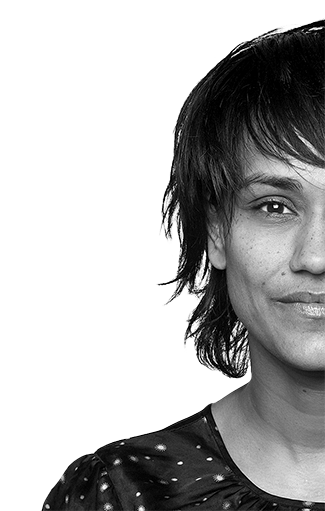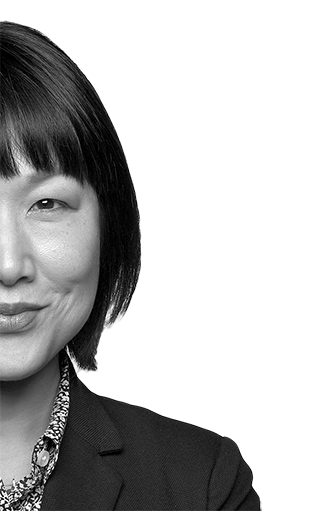


Colour Code
A podcast about race in Canada
Listen now
Episode 11 Your Turn
In this, our last episode, we are featuring questions, comments and critiques from our listeners. It's a look back at the series while considering how we can all move forward with the conversation — how to approach and cope with discussions of race and identity at home, at school and with friends and family.
We talk to:
- Ian Campeau of A Tribe Called Red
- Kamal Al-Solaylee, author of Brown: What Being Brown in the World Today Means (to Everyone)
Suggested reading:
- Kamal Al-Solaylee on Trump’s win, “Don’t kid yourself: This was all about race”
- “How to Stay Sane While Black,” on racism and mental health, by Morgan Parker
- On the Debt and Deportation episode of NPR's Death, Sex and Money, Diane Guerrero of Orange is the New Black discusses the effect of her parents’ deportation on her own addiction and mental health issues
Episode 10 Surface Tension
Is anyone responsible for a hate crime beyond the person who committed it? Hannah and Denise visit Sutton, Ont., where a racially-motivated act 10 years ago resulted in a tragedy that changed lives forever.
Warning: This episode contains racist language
We talk to:
- Andre Gagnon, a resident of Sutton
- Colin and Terry Berwick, parents of Shayne Berwick, who was injured in a 2007 car crash
- Avvy Go, director, Metro Toronto Chinese and Southeast Asian Legal Clinic
- Brad Lee, a Chinese-Canadian community advocate and hobby fisher
- Taro Murata, a fishing tour guide
- Sandi Rait, a homeowner in Sutton
Suggested reading:
- The 2007 story that introduced us to Sutton
- A more recent story about racial tension there
Guest episode The Cajun Reconnection
We’re taking a break this week to share an episode of Gravy, a podcast by our friends at the Southern Foodways Alliance. The Cajun Reconnection explores the culinary and cultural connections between the Cajuns of Louisiana and the Acadians of eastern Canada.
Get more Gravy here. Colour Code will return next week.
Episode 9 Race and Real Estate
The price of home ownership has skyrocketed in Vancouver, and many think foreign buyers – especially those from China – are a big reason why. Hannah visits the west coast city to learn the history of race and space in B.C. and speaks with Vancouverites, including an urban planning academic and a real estate agent.
We talk to:
- Henry Yu, a history professor at the University of British Columbia
- Melissa Wu, realtor with Keller Williams Black Diamond Realty
- Andy Yan, director of The City Program at Simon Fraser University
- Claudia Kwan, a real estate reporter in Vancouver
Suggested reading:
- “Is the B.C. property levy on ‘foreign buyers’ a new head tax?,” an op-ed Henry Yu wrote for The Globe in September
- Andy Yan’s 2015 data set analyzing the names of recent buyers in Vancouver in an attempt to determine citizenship
- Frances Bula’s story on “the dragon in the room”, which explores the hostility some Chinese immigrants are facing in Vancouver
Episode 8 Eggshells
Coined by educator Robin DiAngelo, the term “white fragility” refers to the emotional, defensive reaction some white people have to discussions of race. To explore the concept, Hannah and Denise revisit a recent conversation between Denise and a radio host that got more than a little bit uncomfortable.
We talk to:
- Robin DiAngelo
- Zameer Karim, former producer, and Ian Power, former host, CKNW
- Larry Gifford, program director, CKNW
Suggested reading:
- The original CBC-Angus Reid poll story entitled “Canadians want minorities to do more to ‘fit in’”
- The White Flight of Derek Black by Eli Saslow
- A great video project from the Seattle Times in which people of all backgrounds discuss White Fragility (among other terms)
- Meredith Clark on whether social relationships are the key to diversity in media
Episode 7 The Only One
Canada may be a multicultural country, but there are still many places with very few people of colour. As city kids, Denise and Hannah have always wondered: Is it lonely to be the only racialized person, or family, in a small town?
We talk to:
- Musician Fritz Helder, who grew up in Whitehorse, Yukon
- Ann Hui, the Globe's national food reporter
- William Choy, mayor of Stony Plain, Alta. and owner of Bing's #1 Restaurant in Stony Plain
- Peter Li and Linda Xie, owners of Diana Restaurant in Drumheller, Alta.
Suggested reading:
- Chop Suey Nation, Ann's cross-country story about the immigrant history, and vibrant present, of Chinese-Canadian food
Episode 6 2Legit
This episode explores the concept of legitimacy in talking about race in Canada, from what we consider shared knowledge to the very words we use. What histories do we all know and accept to be true? What vocabulary do we consider acceptable and accessible?
We talk to:
- Sylvia D. Hamilton, a filmmaker and professor at University of Kings College in Halifax
- Naila Keleta-Mae, a professor at the University of Waterloo and Globe op-ed contributor
- Celeste Yim, a comedian and student at the University of Toronto
Suggested reading:
- Naila’s column from last summer on Black Lives Matter: It’s dramatic, unsettling and inconvenient. That’s the point
- Robin DiAngelo’s essay on White Fragility, mentioned in this episode
- Denise's column on why it's hard to say “white” — and why it's important that we do
Episode 5 First Comes Love
The number of mixed race relationships is growing in Canada. How do families negotiate race in the most intimate setting of all — at home, with the ones you love?
We talk to:
- Globe reporter Sherrill Sutherland, who is biracial herself
- Paul and Victoria Martin, a Black man and Chinese woman raising their family in Markham, Ont.
- Globe reporter Zosia Bielski, who covers relationships
- University of Toronto Scarborough professor Minelle Mahtani, author of Mixed Race Amnesia: Resisting the Romanticization of Multiraciality in Canada
Suggested reading:
- Zosia’s full Q&A with Prof. Mahtani
- How My White Mother Helped Me Find My Blackness, an essay by Ijeoma Oluo
Episode 4 The Angel Complex
On this episode, we discuss a core concept of Canadian identity – comparing ourselves to the United States. Race relations in our neighbouring country are often dramatic and sometimes violent. But does that mean our actual level of racism is lower?
We talk to:
- Guests at a premiere of a Heritage Minute about civil rights hero Viola Desmond
- Mohammed Hashim, labour activist and organizer of the online Muslim community Dawanet
- Akio Maroon, human rights advocate and chair of Maggie’s Sex Work Action Project
- Denise’s brothers, Ian and Tony, Canadian expats in the U.S.
Suggested reading:
- Tavia Grant digs into data on race, health, employment and crime in both countries, and talks to people who have lived on both sides of the border
- Columnist Doug Saunders compares the experiences of black people in Canada and the U.S.
Episode 3 Pop, Power, Privilege
This episode features an intimate, one-on-one conversation with British-Sri Lankan musician and pop provocateur M.I.A. From living through war as a child to performing at the Grammys and the Super Bowl as an adult, M.I.A.’s experiences transcend many identities at once.
Suggested reading:
- Here’s a text Q&A excerpt from our conversation
- Here’s an interview from the Evening Standard that sparked M.I.A.'s #MuslimLivesMatter controversy, as referenced in our conversation
- And the 2010 New York Times magazine profile of M.I.A. that was written by Lynn Hirschberg
Episode 2 The Most Visible Minority
In this conversation-packed episode, we ask two Canadian leaders, one in the arts and one in politics, to share thoughts on the experience of being a visible minority in a high-profile position.
We talk to:
- Naheed Nenshi, the mayor of Calgary
- Cameron Bailey, artistic director of the Toronto International Film Festival
Suggested reading:
- Here’s the essay on Canadian pluralism that Mayor Nenshi wrote for us during the election last year
- And this is Cameron Bailey’s essay on #OscarsSoWhite from earlier this year during the Oscars race
- Two articles we mention in this podcast are Cord Jefferson’s essay The Racism Beat and Jenna Wortham’s Black Health Matters
Episode 1 Race Card
On this, the first episode of Colour Code, we try to figure out Indian Status: who gets it, what it means, where it came from and how it resonates in Canada and indigenous communities today.
We talk to:
- Stephanie Pangowish, a comedian with the indigenous troupe Manifest Destiny’s Child
- Michael Etherington, the cultural program manager of the Native Canadian Centre of Toronto
- Damien Lee, who grew up on the Fort William First Nation outside of Thunder Bay, Ont.
Suggested reading:
- Embarrassed? Uncomfortable? Defensive? Here’s Denise on why you should get over it and start talking about race
- If you’re brand new to the idea of Indian Status (we were), here’s a handy guide by Métis writer Chelsea Vowel, whose new book, Indigenous Writes, is out now.
- And if you’d like to know more about the issue of missing and murdered indigenous women in Canada, here’s some coverage The Globe and Mail has done so far.
Podcast teaser Introducing Colour Code
Welcome to The Globe and Mail’s new podcast series about race in Canada. For hosts Denise Balkissoon and Hannah Sung, it’s first things first: What is race? And why do we need this conversation right now?
About Colour Code
If there’s one thing Canadians avoid, it’s talking about race. This podcast is here to change that. Join hosts Denise Balkissoon and Hannah Sung for a new conversation on race in Canada. We won’t have all the answers but we do ask bold questions.
Denise Balkissoon is a columnist and editor for The Globe’s Life section. Hannah Sung is a video producer at The Globe.
Join the conversation on Twitter #ColourCode
Email the show at colourcode@globeandmail.com
Show theme song by Bonjay
Subscribe
- RSS feed
https://tgam.ca/colourcode-rss

